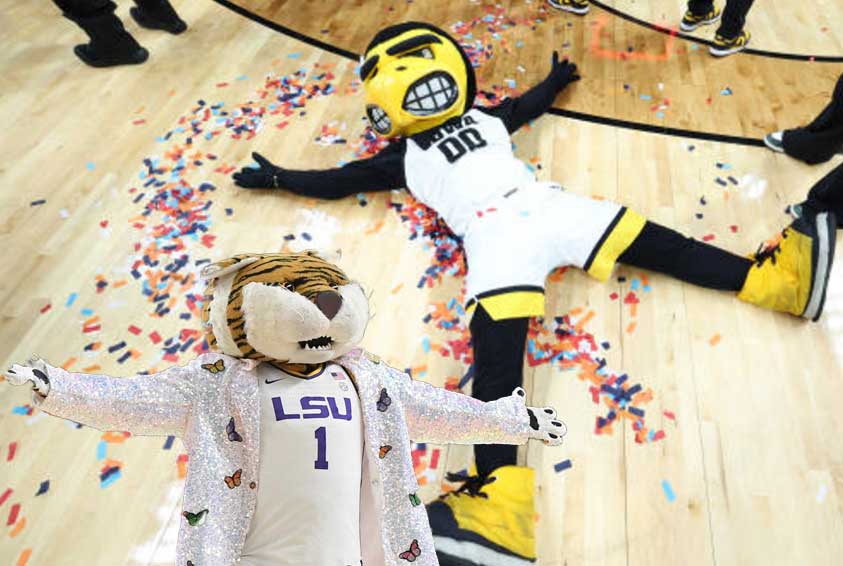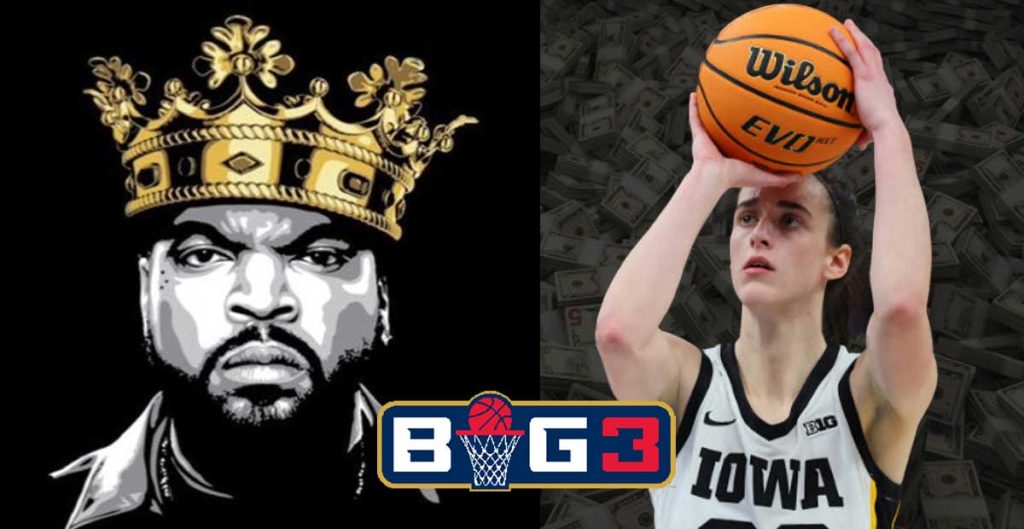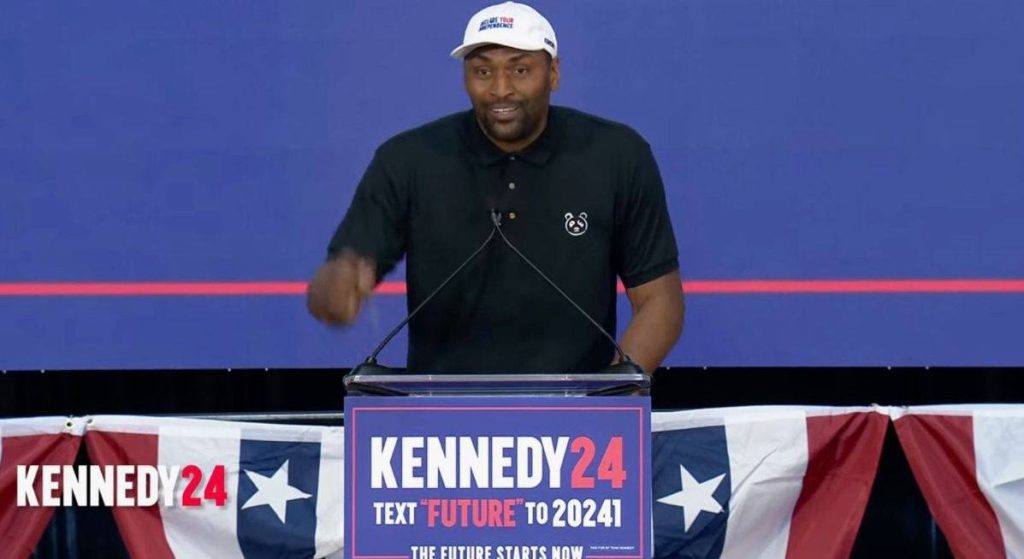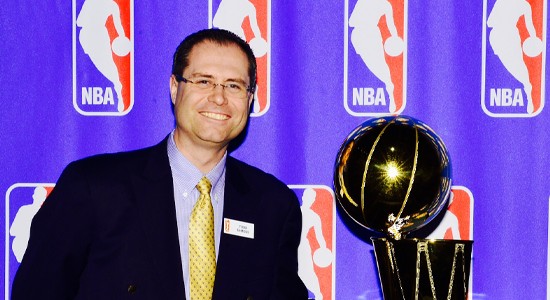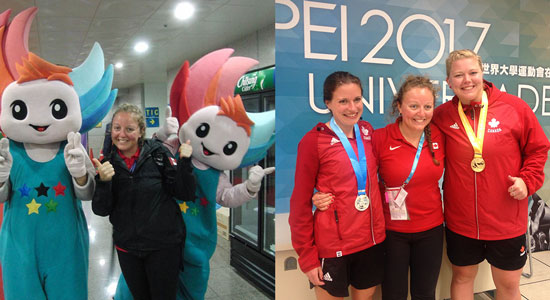
1 on 1 with Kristine Deacon | Manager of National Teams | Athletics Canada

Easily the best reward for me managing a team is knowing I have done everything in my power to ensure the athletes and staff (coaches, medical and administrative) have everything they need to perform their best when it matters most.
Kristine Deacon
Manager of National Teams
Athletics Canada
The Latest
Jontay Porter Banned From The NBA For Life
Iowa vs LSU: A Landmark Moment in Women’s College Basketball
Former NHLer Josh Ho-Sang Now A Rapper
Metta World Peace Endorses RFK Jr. for President 2024
Tell us about your role as the Manager of National Teams of the Athletics Canada.
I echo how others have answered this question, but feel strongly there is no typical day in my current role. Over a calendar year, my daily tasks and responsibilities vary depending on the current month.
The outdoor track and field season traditionally runs from May – September but can run later in the fall depending on the international competition calendar. The fall allows time to focus on high-performance reviews, debriefs, budget and event planning for the coming year, and athlete funding program reviews.
The winter months are focused on planning all logistics for upcoming competitions, attending warm weather training camps and occasionally international competitions, depending on the year.
The one thing I love about my current role is there are a variety of tasks and daily focuses, constantly changing from one day to the next. We also work to develop important relationships with athletes, coaches, support staff, and domestic and international partners each day.
A typical day at a warm-weather training camp during the winter months could look like this:
Staff meeting during breakfast with camp coaches and medical staff to review training plans for the day, discuss any logistics that need to be taken care and allow all staff to provide any updates that are relevant for the day ahead. Athletes and coaches depart the hotel at 9:00 to head to the stadium for training.
Athletes train from 9:30 – 12:30 on both the track and in the weight room.
While athletes are training, I am at the track assisting where I can.
I move starting blocks out of the equipment room for athletes to use on the track, ensure there is enough water and ice available, supervise athletes while they are lifting in the weight room, help a coach with recording a training video or pick-up healthy post-training snacks for the athletes to have when their training is finished. Through this, we need to be agile and adapt to the needs and issues as they arise.
Ultimately, we want to ensure everyone has the conditions for peak performance.
When training has wrapped up for the day, I head back to the hotel and ensure our medical staff have a chance to get some lunch before they begin treating athletes in the afternoon.
I use the afternoons to respond to emails, requests from the office, and other programs, run errands if any supplies are required, and take athletes to the grocery store. Most of our warm-weather training camps are two weeks, so some athletes choose to attend only a portion of the camp.
There are some days I drive to the airport to drop-off or pick-up an athlete. I always enjoy it when I have time in the afternoon to head to the beach with our athletes who choose to have a recovery session in the ocean.
Most evenings are spent planning for the next day, meeting with staff or athletes if necessary, and ensuring everything is in order to minimize any surprises.
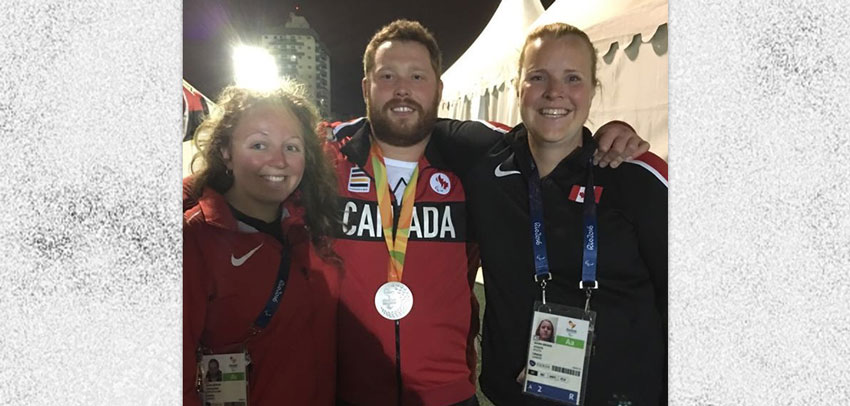
2How did you know that this was the area in which you wanted to work? What led you to this path?
This is not a career path I saw myself pursuing while in university, as I was planning to be an elementary teacher for as long as I can remember.
I graduated in Canadian and Global Studies. After graduation, I was exploring my opportunities for applying to teachers' college and graduate school.
While considering my options, I had the opportunity to apply to a one-year international development internship with Commonwealth Games Canada (now Commonwealth Sport Canada). I was selected as a Capacity Support Officer (CSO) to work in Grenada with the Grenada Olympic Committee (GOC). I had the opportunity to work in Grenada for one year (April 2011 – April 2012), working on a variety of tasks associated with a National Olympic Committee.
After completing this internship, I returned to Canada excited about the opportunities I had while working abroad and wanted to work for a National Sport Organization (NSO) in Canada.
I was unaware of how small and competitive the sports industry was in Canada, but applied to a one-year contract with Athletics Canada, and was hired as the Athlete Services Coordinator in April 2012.
I feel very strongly that the skills and experiences I had while working in Grenada, allowed me to be successful in the Canadian sport system.
My mom has also had a huge impact on my career, as she has had the opportunity to work in the Canadian sport system in a variety of leadership roles both on and off the field of play.
I have seen the positive impact that sport has had on both her professional and personal life over the years. I was fortunate to attend both the 2000 and 2010 Olympic Games as a spectator, so it is exciting for me to experience working “behind the scenes”.
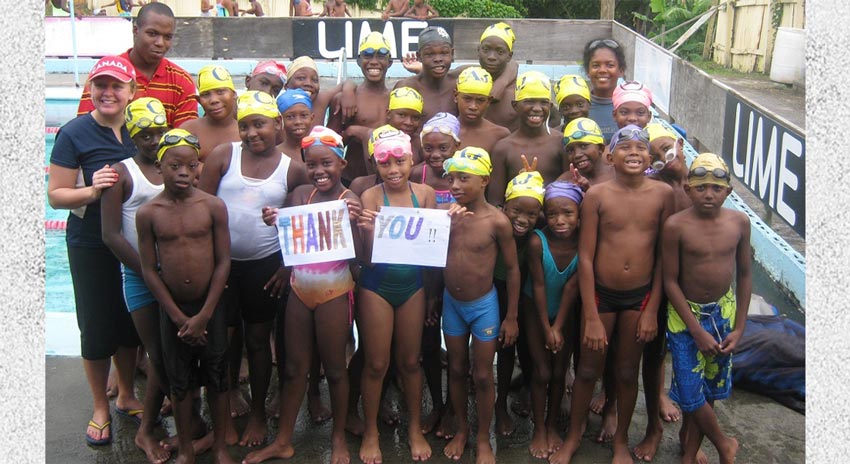
3As part of your role, you’ve worked as Team Manager for many international events (i.e., Rio 2016, Napoli 2019, Lima 2019, etc.). What is the best thing about working these international events and why?
The biggest reward for me as a team manager is when I get to see first-hand all of the hard work and planning that I have done prior to the event, pay off. I always say that the work I take care of “off the track”, will ultimately allow athletes to perform their best “on the track and field”.
I have had the opportunity over the last 8 years to manage over 15 national teams; including Cross Country, World Indoors, World Juniors, FISU, Youth Olympics, World Championships, Parpan American, and Paralympic Games.
Each international competition shares its similarities but also has unique characteristics. Easily the best reward for me managing a team is knowing I have done everything in my power to ensure the athletes and staff (coaches, medical and administrative) have everything they need to perform their best when it matters most.
I have numerous experiences to share about tasks I have had to perform over the years, but some include traveling with an athlete to the airport to retrieve their pole vault poles from customs, spending countless hours on hold with an airline trying to trace a lost piece of luggage or sporting equipment and arranging for it to be delivered to the team member, traveling to a Canadian embassy to assist an athlete with applying for an emergency passport or accompanying an injured athlete to the local hospital to ensure they have a familiar face with them.
Many times I need to listen very closely to deeply understand the unique challenge an athlete or coach may have. The role of team manager has allowed me to get creative with my problem-solving skills in order to have the best possible outcome for our athletes, coaches, support staff, and staff.
I feel very fortunate to have had the opportunity to travel internationally with our national team Olympic and Paralympic athletes, watching them compete on the global stage while fulfilling their dreams. Watching an athlete experience their first time on a national team is so incredibly rewarding for me, making the very long days and endless other duties as required worth it 100%.
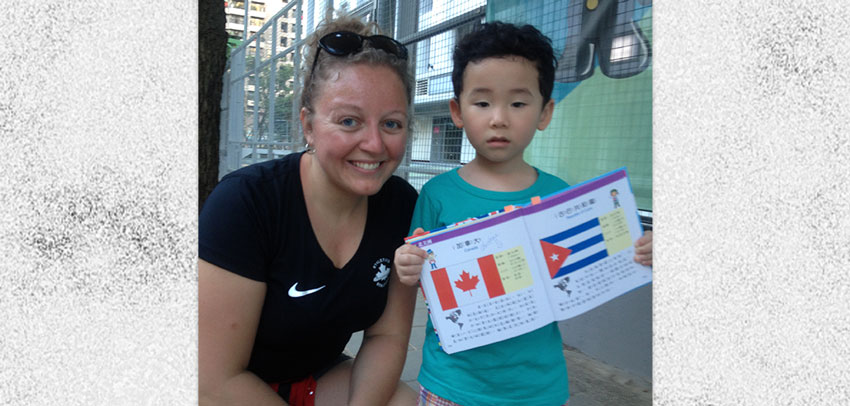
4As you came up the ranks with Athletics Canada, you also got to watch athletes do the same. We know your job is to inspire athletes and encourage the next generation but, was there anything these athletes inspired within you during this time? Moreover, have you learned anything from them?
I have seen first-hand how resilient and focused athletes are when it matters most.
The first large national team I had the opportunity of managing was the 2013 Pan American Junior Championships in Colombia. This team included incredible talent; with numerous athletes going on to compete at the 2016 Olympic Games exactly three years later. One athlete successfully medaled multiple times in Rio!
I have worked with athletes who have had personal challenges arise as they are in their final few days or hours before competition day and have had to turn their focus on and put aside any other distractions. It amazes me how in 2013 when these athletes were still juniors, some competing outside of Canada for the first time, had already mastered these critical skills.
I always say that our lives are not “put on hold” in Canada when attending international events, but it is how athletes manage these distractions when they arise, that has truly inspired me. The work of our athletes and coaches makes me push myself out of my comfort zone and keep laser-focused every moment possible.
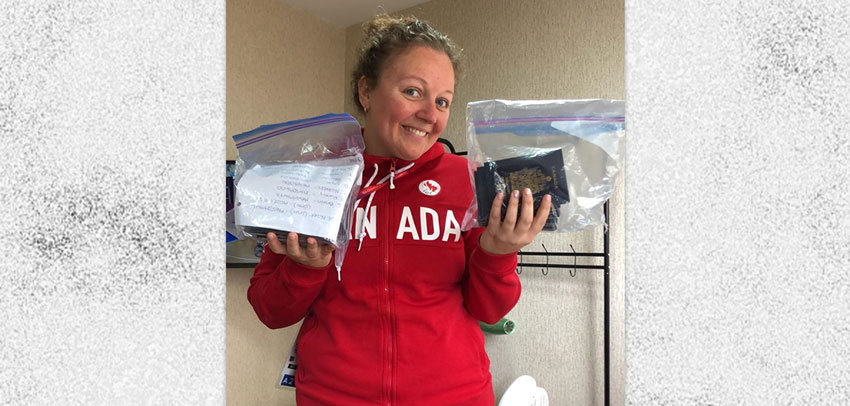
5With the Tokyo 2020 Olympic and Paralympic Games being postponed to 2021, I have to ask, how has your work changed for the rest of the year?
I was in Tokyo at the end of February, completing a final site visit prior to the Paralympic Games this August.
At the time, cases of COVID-19 were on the rise in certain areas of the world, but never did I think that the 2020 Games would be postponed to 2021. Within three weeks of returning to Canada, the Games were officially postponed to next year.
I started working remotely on March 16, as our entire country experienced the challenges associated with COVID-19.
The first few weeks working from home were focused on canceling flights and hotels that had been booked for training camps and competitions in the spring, staff and planning meetings over ZOOM, and working with our contacts at the Canadian Olympic and Paralympic Committee on next steps.
I was planning to be in Switzerland for two weeks in May for competitions, Montreal at the end of June for our Olympic and Paralympic Trials, before heading to Japan on August 16 for our final training camp prior to the Paralympic Games.
I am very proud that Canada was a strong advocate for the Games to be postponed by one year, ensuring that the health and safety of our athletes and staff was the top priority. It truly amazes me that in a day, all international plans were put on hold. I, of course, feel the most for our athletes that have had the Tokyo Games circled on their calendars for years, but as mentioned earlier our athletes are resilient and have made the most out of this unique and challenging situation.
The last few months working from home has allowed me to work with my colleagues on specific projects that we may have not had time for in the past, review internal policies, and plan for international events in 2021 that hopefully go ahead as scheduled. I choose to look at the last five months as a professional challenge that has given us the gift of time to focus on specific areas and projects within our high-performance department.
This has also allowed me to complete some e-learning that I would not have been able to do if the Games were taking place this month.
I continue to make it a priority to touch base with colleagues and athletes on a regular basis to see if there is anything I can support them with. A phone or video call can sometimes go a long way in someone’s day.
I worked with three of my colleagues in April to create a daily step challenge for our staff, that allowed us to be competitive with each other and ensure breaks were be taken during the day to get some fresh air.
It is still hard to understand what the “new normal” will look like once competitions start happening internationally, but it is encouraging to see that there are a few domestic meets taking place in parts of the country, and international meets scheduled over the next few weeks. I am most thankful that as an organization we continue to all work together for a strong future for our sport.
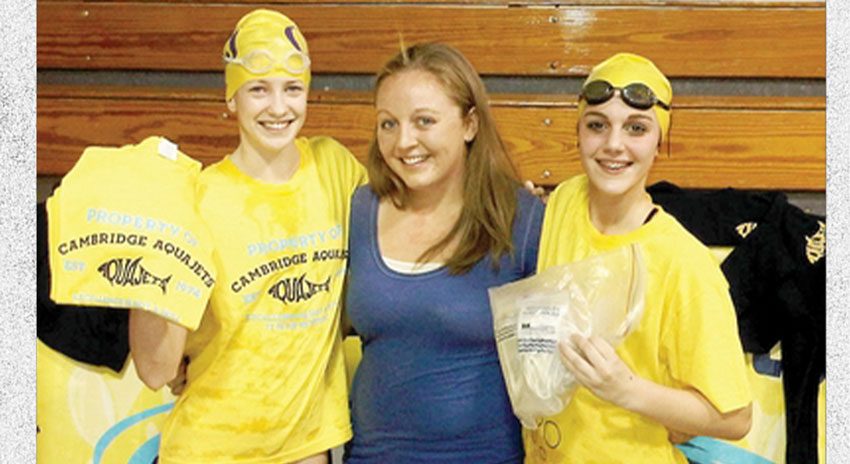
6You grew up a swimmer, eventually coaching for the Cambridge Aquajets. As a former coach who then went on to work for the Commonwealth Games Canada International Development, you created the Goggles for Grenada program. I think this is one of the most amazing things about your sports career – tell us about this program and why you felt it was important to implement.
Swimming has been part of my life for as long as I can remember.
Growing up I would spend hours in a lake with my sister at our cottage, likely resembling a prune when I finally got out of the water.
I did competitive synchronized swimming for three years, before joining the Cambridge Aquajets as a competitive swimmer. I swam competitively for both the Cambridge Aquajets and my high-school swim team, for five years before transitioning to coaching.
Goggles for Grenada was an idea I came up with while working in Grenada. As part of my work with the Grenada Olympic Committee, I had the opportunity to teach swimming lessons to primary school students through the Ministry of Sports.
Grenada is a very small Caribbean country surrounded by the beautiful ocean, but only has one public swimming pool for the entire country with a population of 112,000. The one public pool was used to teach primary students during the day and then used by three competitive swim teams in the evenings and on the weekends. I also taught one school group in the ocean on Saturday, which was a new experience for me.
After discussing some of the challenges that the primary school students were facing with the learn to swim program with two of my colleagues at the time who were placed in other Commonwealth Countries, I came up with the concept of my former swim club in Canada collecting swimming supplies (caps, goggles, fins) to be donated to the students in Grenada who could not afford these items.
I presented my idea to the Head Coach of the Cambridge Aqujatets in the fall of 2011 and he was on board. Over the next few months, swimmers in Cambridge donated new or gently used items to Goggles for Grenada.
I came back to Canada for Christmas and was completely blown away at the generosity of my former swim club and the items they were able to donate to Grenada. The cost of the learn to swim program was covered by the Ministry of Sports, but swimmers had to have their own bathing cap and goggles.
It would break my heart when I saw swimmers showing up at the pool for their weekly lesson, but be missing some of the required equipment. I was able to return to Grenada in January with a suitcase full of equipment that was put to excellent use immediately.
I was so incredibly proud of my swim club and witnessed the impact that a swim club had on young swimmers in Grenada. I feel incredibly fortunate for the opportunities I had both as a synchronized and competitive swimmer growing up and the support I had from my parents to be involved in these activities. Swimming is such an important life skill to have, so it was an honour to give back to the swimmers in Grenada.
I am very fortunate to still be coaching competitive swimming in Ottawa.
By the way, the pool I coached at in Grenada was damaged by Hurricane Ivan (2004) but still serves as a vital training facility.
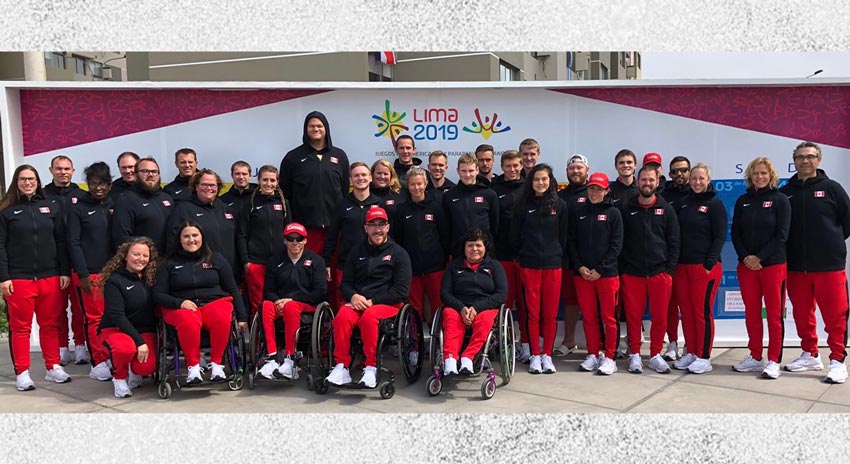
7Finally, in a role similar to yours, what would you say are three essential skills someone needs to succeed?
- Strong Organization and Time Management Skills – I consider myself to be very organized and efficient with planning my time accordingly. These two skills are critical for my current role. Organizing team logistics for camps and competitions, I could be responsible for booking travel and accommodation for up to 70 athletes and staff. A lack of organization or time management on my part could trickle down to a bigger problem or additional stress for an athlete. Time Management is something that becomes incredibly important when onsite at an event. I am usually the first person up in the morning and the last person to go to bed at night, so managing my time during the day and the tasks I need to complete is key. I will always work with colleagues to see if there are tasks I might be able to delegate or have assistance with completing, but at the end of the day it does not matter how organized I am or how I have managed my time, there are always “surprises” that arise that I need to take care of. Being organized and managing my time well from the beginning, allows me to tackle the small things that may surface, as quickly as possible.
- Patience – is key and required every single day. There are days I am dealing with local organizing committees (LOC’s) internationally and in different time zones outside of Canada and different languages, which can create a delay in getting a simple question answered. I learned very early in this job that not all countries operate on a weekly work schedule as Canada does. When onsite at an international competition, patience is golden and will keep you sane when things are not going as planned. I have been at competitions where transportation does not show up at the scheduled time (or at all), key technical information is missing for our coaches to communicate to our athletes, or athlete bibs are being handed out at the start line. I recognize language and cultural differences will likely arise, but remaining patient with local staff will ensure they will try to work with you.
- Working with Others (Interpersonal and Communication) – to enjoy working with people daily is critical in my role, not only being successful but also enjoying what I do each day. I have always enjoyed working with people and cherish the moments I get to spend interacting with our athletes, coaches, medical staff, and colleagues. Having the opportunity to interact with people on a daily basis makes my job incredibly rewarding. Over the past eight years at Athletics Canada, I have had the opportunity to work with athletes on their first junior team and then again on a senior team. Watching an athlete progress over the years and having the opportunity to witness their development in the sport is amazing. I want to be the Team Manager that is there for our athletes and staff, for them to feel they can talk with me if they need someone to listen, to help them resolve a stressful situation in a calm way, or to ensure they have coffee as part of their pre-competition routine. I am grateful for the countless number of individuals I have had the opportunity to interact with over the years in this position and the memories created. All of this has led to a rewarding and gratifying career opportunity for me. I am excited about continuing my experience and growth and proud to do this as a Canadian!
[get_current_post_author_pic_and_name]
Kristine's career has taken her all over the world. From Colombia to Rio to Napoli to Lima and of course, many other places, Kristine has been a part of many wonderful international experiences. However, what matters to her most within this incredible job is seeing Athletics Canada athletes fulfill their lifelong dreams on a global stage. Despite the long days, endless duties and unforeseeable challenges, Kristine finds being a part of an athlete's first experience on a national team significantly rewarding. It's clear that Kristine puts everyone else first to make sure they are at their best -- a sort of humbleness I admire. I can definitely say, Kristine's work ethic is one to which I aspire.



